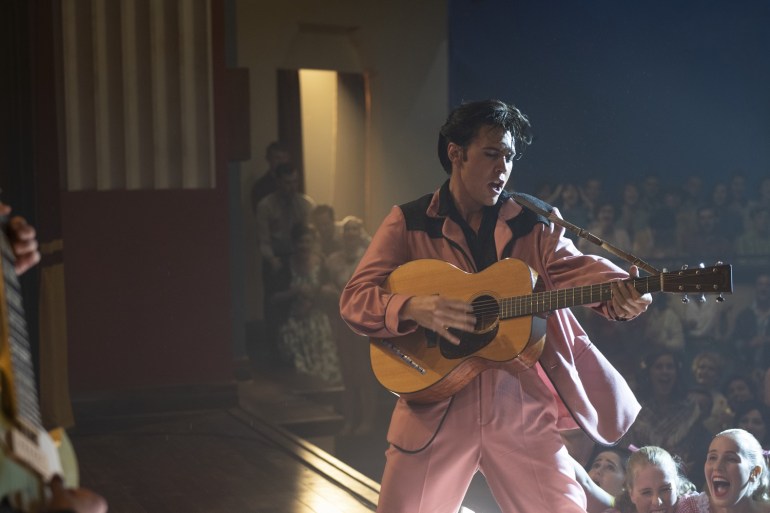Baz Luhrmann’s Elvis attracted the kind of showstopping attention the King was known for following its premiere at this year’s Cannes Film Festival.
Screening out of competition, the Warner Bros. biopic drew a 12-minute standing ovation from the Palais audience, during which star Austin Butler embraced Elvis’s ex-wife Priscilla Presley, portrayed in the film by Australian actress Olivia DeJonge.
The story frames the journey of the iconic crooner through his relationship with enigmatic manager Colonel Tom Parker (Tom Hanks), who relays the events as a man looking back while nearing the end of his life.
Spanning a period of more than 20 years, the story delves into the complex dynamic between the pair, starting from Presley’s rise to fame and continuing through to his unprecedented stardom, the events of which are set against the backdrop of the evolving cultural landscape and loss of innocence in America.
While not unanimous in their praise of the film, critics have been unable to deny the rich spectacle of Luhrmann’s production.
In his review, Deadline‘s Pete Hammond described Elvis as a “visual and vocal feast of a movie”, noting that, technically, it was “every bit as brilliant as you might think a Baz Luhrmann production would be”.
Hammond wrote that Butler “thrillingly succeeds” in the main role, while DeJonge was “superb” as his wife, also singling out other members of the Australian cast for their performances.
“Helen Thomson nicely plays mother Gladys,” he wrote.
“Richard Roxburgh as father Vernon Presley, and Luke Bracey as Jerry Schilling, also have key moments in Presley’s inner circle.”
Writing for The Hollywood Reporter, David Rooney suggests that rections to the film will rest largely on how audiences perceive Luhrmann’s “signature brash, glitter-bomb maximalism”.
“If the writing too seldom measures up to the astonishing visual impact, the affinity the director feels for his showman subject is both contagious and exhausting,” he writes.
“Luhrmann’s taste for poperatic spectacle is evident all the way, resulting in a movie that exults in moments of high melodrama as much as in theatrical artifice and vigorously entertaining performance.”
Variety‘s Owen Gleiberman begins his examination of how the film’s substance matches up to its style by acknowledging the challenge involved in capturing the essence of Elvis, whom he describes as the “mythological figure in the history of popular music” behind The Beatles.
He goes on to describe Luhrmann’s film as a “fizzy, delirious, impishly energized, compulsively watchable 2-hour-and-39-minute fever dream” that is more successful in its objective at certain points than in others.
Gleiberman points to Butler coming off as “more harmless than the real Elvis” as a key problem in the film’s first half, but also notes that it may now be “close to impossible” for a movie to capture how radical the singer’s impact was.
He is more positive when talking about the latter stages of the story, which follow Elvis’s five-year residence at the International Hotel in Las Vegas.
“What Luhrmann grasps is that the Vegas years, in their white-suited glitz way, were trailblazing and stupendous — and that Col. Parker, in his greedy way, was a showbiz visionary for booking Elvis into that setting,” he writes,
“The film captures how Elvis did some of his greatest work as a singer there, apotheosized by the avid ecstasy of Burning Love.”
Elvis will be released in Australian cinemas on June 23.


